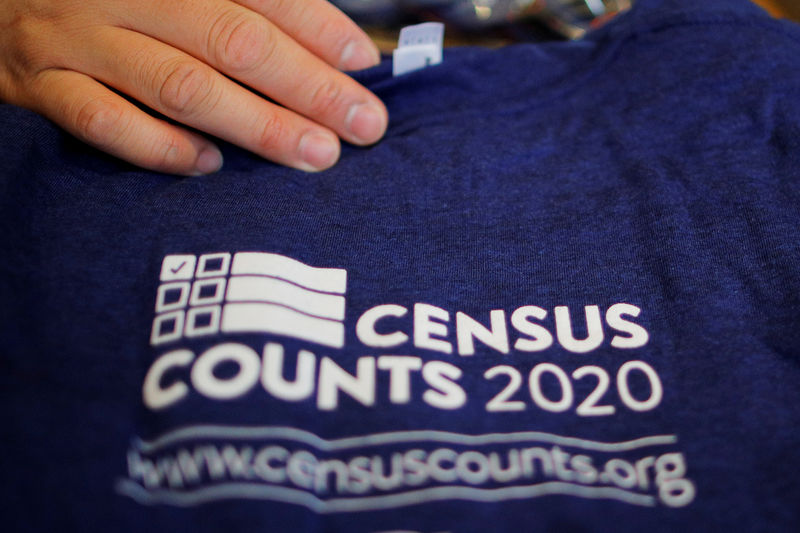By Andrew Chung
NEW YORK (Reuters) - The Trump administration denied accusations that it concealed evidence that its plan to add a citizenship question to the 2020 U.S. Census was aimed at boosting Republicans' electoral power, and said its accusers were making up a conspiracy theory.
In a letter to Manhattan U.S. District Judge Jesse Furman, who in January blocked the citizenship question from being used on the decennial census, the government called the allegations an "eleventh-hour campaign to improperly derail the Supreme Court's resolution of the government's appeal."
The conservative-majority Supreme Court is due to issue a ruling by the end of June on whether the question can be added in time for next year's census.
Furman has scheduled a hearing into the new controversy for Wednesday.
Several immigrant advocacy groups, among the plaintiffs in the case, submitted a filing to the Manhattan federal court on May 30 saying that during the course of their lawsuit the administration hid the fact that Thomas Hofeller, a longtime Republican specialist on drawing electoral districts, played a "significant role" in planning the citizenship question.
Hofeller concluded in a 2015 study that asking census respondents whether they are U.S. citizens "would clearly be a disadvantage to the Democrats" and "advantageous to Republicans and Non-Hispanic Whites" in redistricting, the plaintiffs said.
Hofeller, who died in 2018, went on to ghostwrite a draft letter from the Department of Justice to the Department of Commerce, asking for a citizenship question on the grounds it would help enforce voting rights, according to the plaintiffs.
In Monday's filing, the government said it did not rely on Hofeller's work and said the plaintiffs were "conjuring a conspiracy theory involving a deceased political operative."
A Justice Department spokesperson said in a statement: "This baseless attack on the integrity of the department and its employees is based on nothing more than fevered speculation."
Opponents have said a citizenship question would cause a sizeable undercount by deterring immigrant households and Latinos from filling out the forms, out of fear the information would be shared with law enforcement.

Democrats, immigrant advocates and demographers say such an undercount could deprive some communities of funds and political representation because the Census determines how the federal government distributes aid, as well as seats in Congress.